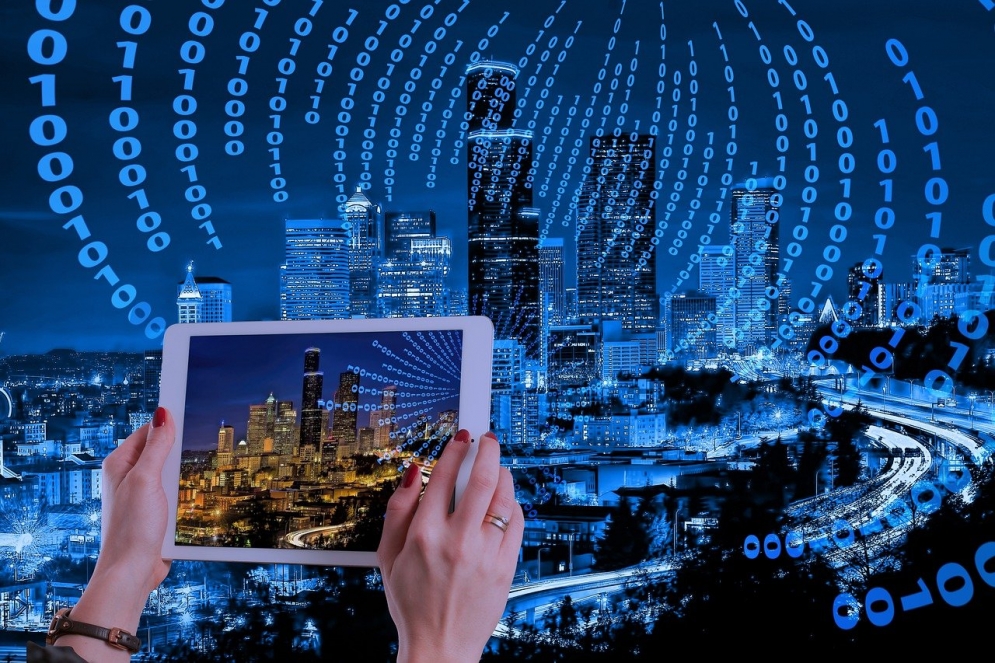Undoubtedly, you have heard of smartphones. More likely than not, you have one in your pocket as you read this. Additionally, smart homes and smart home features are likely part of your vocabulary in today’s world, including the likes of Ring Doorbells, Nest to remotely handle things like your thermostat, or any number of artificial intelligence (A.I.)-based devices, such as Amazon’s Alexa. But have you yet heard of a “Smart City?”
Despite having the aforementioned technologies, does the concept of Smart City still sound like something out of a sci-fi movie or Netflix series? It shouldn’t, as the technology that encompasses a Smart City is fast becoming a reality, and it is already applied in many ways.
What Is A Smart City?
You may already have a rough understanding of what a Smart City may include, given the frequency of smart home applications and devices on the market today. Because we have fully embraced the concept of smart devices in our pockets, our cars and our homes, it’s only natural that we now look to make our cities much smarter as well.
However, a Smart City being a much larger scale application means larger solutions to much more widespread problems the residents and working professionals of a city face. In simpler terms, a Smart City technology can address issues with transportation, public safety, waste disposal and processing, urban planning, economic development, and more.
Those are the issues that need solving, and digital technology is what solves them, much like you having an App to change your home thermostat from a beach in Jamaica. So, what exactly are some of the prominent technologies at play in the development of a Smart City?
5G Connectivity and Transportation
Between Verizon, AT&T, and our own personal connectivity, 5G is applicable in far greater situations, integral especially in the functionality of a Smart City.
The traffic in every major city across the world is probably our biggest concern, both because of pollution and the inevitable gridlock many face in cities like Los Angeles and Chicago. Verizon Wireless is one of the biggest 5G traffic management system providers in the United States, boasting the ability to cut down vehicle idle time by nearly half of what it has been by way of implementing Internet of Things (IoT) devices in the pavement and streetlights to better alert local authorities of patterns in traffic.
In addition to driving, let’s also consider the issue of parking. If you did not grow up in a city, you know exactly how frustrating it is to do laps around a downtown area looking for an available spot. Smart parking systems coupled with low latency connectivity of 5G can likely provide an out-of-towner the ability to be alerted when a parking spot is upon them.
Safety And Security In The City
Small-town individuals who travel to a bigger city for work or, as work becomes more remote, entertainment and enrichment are the prime target for muggers and physical crimes. Is this something that the more advanced technology of a Smart City can remedy?
Yes, it can and absolutely will! 5G connectivity facilitates what is called Edge Computing: a lightning-fast capturing and processing of data unlike ever before, updating over-the-air and data management platforms quickly. This level of video surveillance facilitates real-time analysis of video recordings of high-crime areas in the city to quickly identify and thwart something as small as a mugging or as large as a citywide terror threat.
Because our smart devices give us the ability to be so connected, greatly increasing the volume of data that is generated every second of every day, 5G connectivity can and will be put to great use in the way of safety and security. However, there is also the double-edged sword many authority figures and politicians must deal with. Will the public be okay being on camera every step of the way for their safety?
All This Technology, What About Hacking?
While on the subject of safety, when it comes to connectivity, the fear of hacking or destructive cybercrime is always prevalent. How do you have such a digital city, with so many critically used technologies, and keep it digitally safe for everyone?
In this case, blockchain technology is the answer.
Blockchain is a decentralized ledger system that cryptocurrencies are built on, storing data across a series of computers rather than one solid hub. This, coupled with its level of encryption, makes hacking nearly impossible, as the second a breach occurs, it would take the hacker an absurd amount of time to reconstruct the data, giving cybersecurity professionals and software the ability to respond long before the damage is done.
Smart Cities Are A Hard Trend
In many cases, Smart Cities are already under way, as is 5G connectivity for our personal devices and smart homes.
According to my Anticipatory Organization Model, in order to stay ahead of digital disruptions in your industry, you must pay attention to the Hard Trends, or future certainties that we cannot change, shaping the world.
I already identified 5G connectivity as a Hard Trend many years ago, and, likewise, 6G and beyond will materialize as well. And because of that, the applications of Smart City technology are truly limitless; a Soft Trend that is open to influence, which you can then leverage to your advantage.
Smart Cities are digital, but human beings are the ones that give them a reason to exist at all. Therefore, it is important to become an Anticipatory Leader today, so can you use my Hard Trend Methodology to pre-solve problems that we as humankind will face as cities become more digitally connected?







